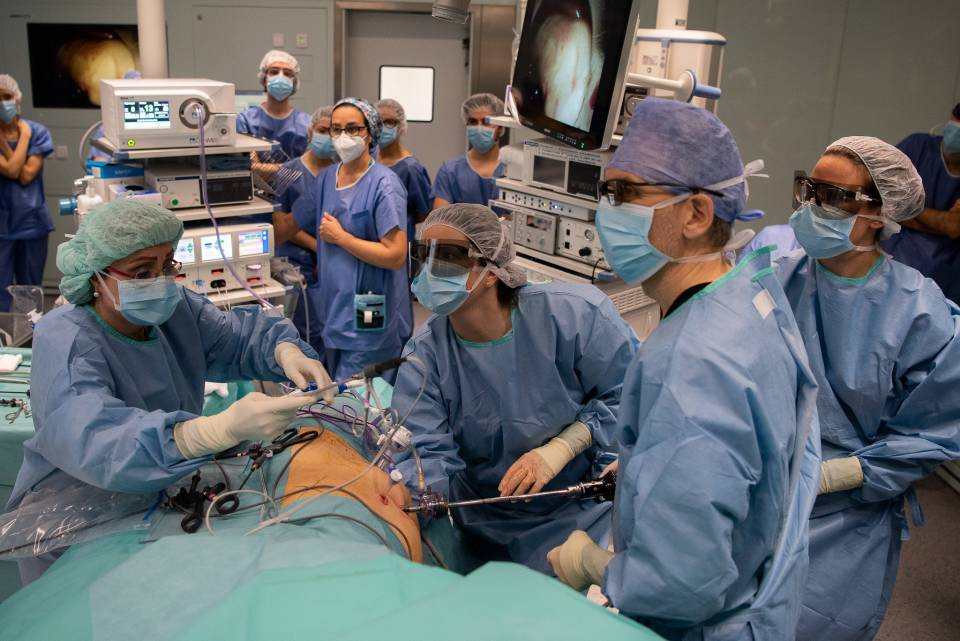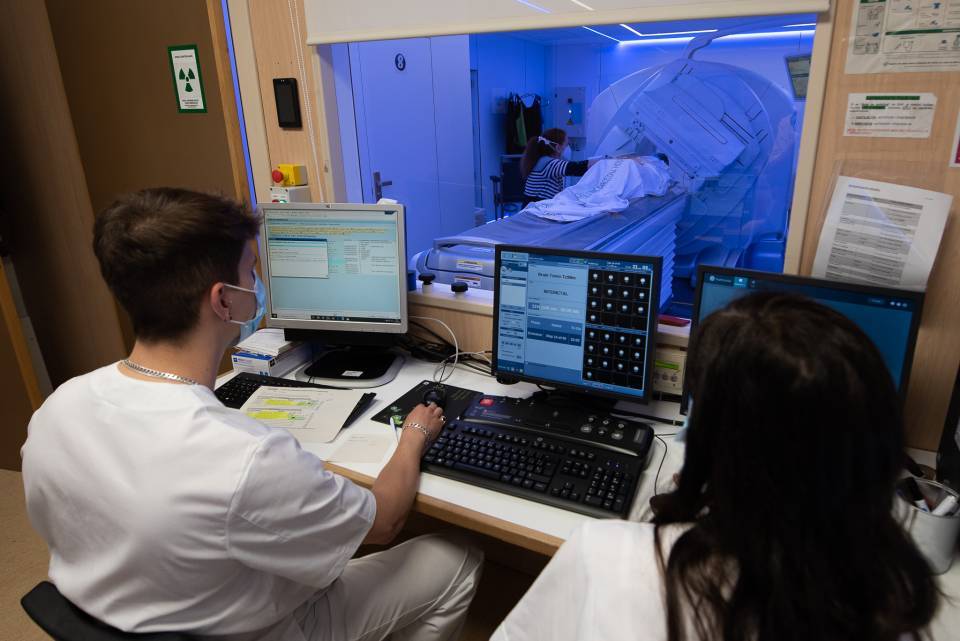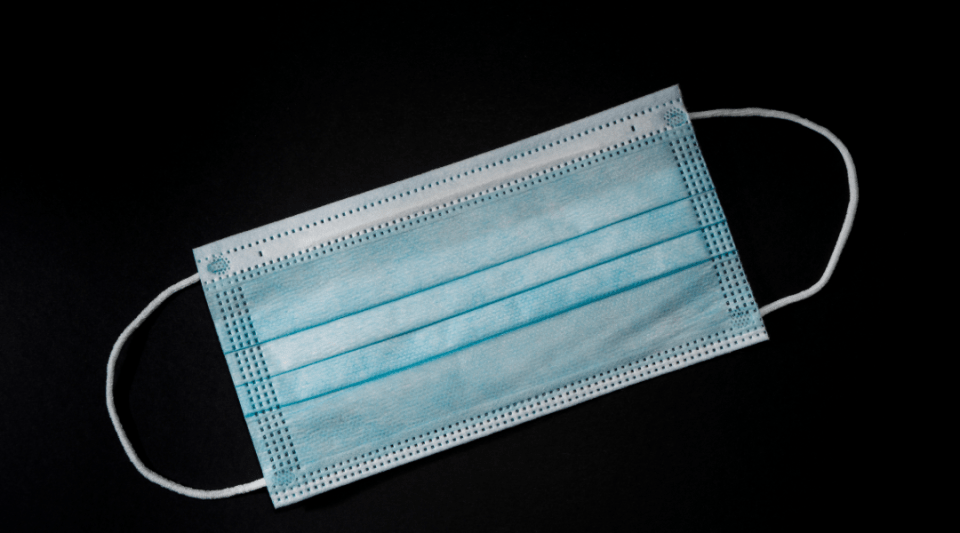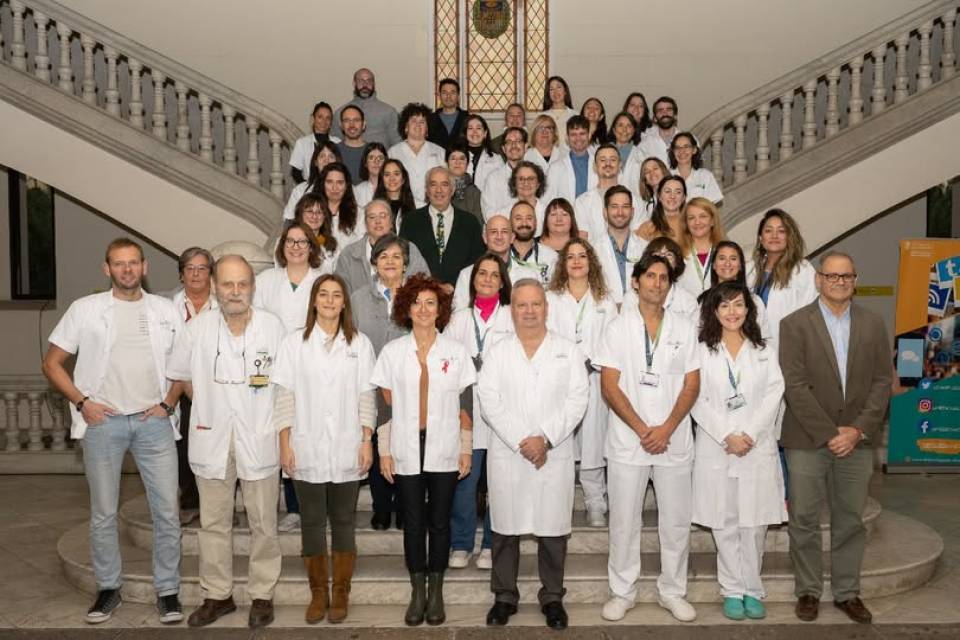The technique used by the Hospital Clínic de Barcelona improves the current one via a Super-Mini Percutaneous (SMP) technique with better irrigation (constant serum inflow) and continuous aspiration. This new technique in which this new device is used allows for better suction and is much more efficient and effective. It is also an improvement for patients, since it only requires one day of hospitalization, unlike the time currently needed, and is less invasive. The Hospital Clínic carries out 300 kidney stone surgeries each year. Around 70 of them are percutaneous nephrolithotomies and it is expected that about 30 surgeries will be performed with this new technique.
This kidney stone surgery technique is called Percutaneous Nephrolithotomy (PNL) and consists of a percutaneous puncture in the lumbar region, under the twelfth rib, to access the inside of the kidney cavity, in order to fragment the stone and remove it. This is indicated for kidney stones measuring 2 cm or more. Possible complications include renal haemorrhage that requires embolization (in order to stop it, a substance is introduced by endovascular route to the point of bleeding), renal haematoma infection, residual fragments, and urinoma (a collection of extravasated urine from the urinary tract).
Kidney stones
Kidney stones, also called renal calculi, urolithiasis or nephrolithiasis, is a disease caused by the presence of calculi or stones inside the kidneys or the urinary tract (ureters or bladder). A stone or calculus can be as small as a grain of sand or as large as a pearl. Sometimes, a stone is not easy to remove from the body and medical and surgical treatment is required. During its expulsion, it can get stuck in the urinary tract, block the flow of urine and cause a great deal of pain and complications.
Kidney stones are a common disease affecting around 10% of the population in industrialized countries. Its prevalence has increased over the last 50 years.
The lifetime risk of kidney stone formation in the general population is 15% for men and between 5-10% in women. Moreover, it has a very high recurrence rate (having a new episode after the first one): 50% of patients with kidney stones will have a new episode within 5 years and 90% within 25 years.
Most of those affected are young adults 15 to 45 years old. In men, it is approximately twice as frequent as in women.
New edition of the Uroforum at the Hospital Clínic
The Hospital Clínic de Barcelona, through its Urology Service headed by Dr. Antonio Alcaraz, is organizing a new edition of the Uroforum, the meeting that will bring together the world’s top urology specialists for 3 days.
The Uroforum is held in the Paranimf Auditorium of the Faculty de Medicine and Medical Sciences of the University of Barcelona and brings together some 300 urology professionals. This year’s Uroforum has 5 live surgery sessions with 2 simultaneous surgical procedures that show different approaches to the same problem. Whilst the procedures are being performed, the Uroforum participants can follow them via screens and 3D glasses in the Paranimf Auditorium and can interact with the surgeons carrying out the operations. When each procedure finishes, there is a debate with two experts and the public to present different points of view on the surgery performed.
The Uroforum’s opening ceremony took place yesterday, on Wednesday 29 June, with the round table 'New knowledge on advanced prostate cancer: a marvellous decade’, moderated by Dr. Antonio Alcaraz, Head of Urology at the Hospital Clínic, with the participation of Dr. Antoni Vilaseca, Senior Specialist in the Urology Service at the Hospital Clinic de Barcelona, and the urologists Dr. Daniel Pérez-Fuentes and Dr. Jesús Muñoz.
During this new edition of the Uroforum there have been debates on different approaches to cystectomy (robotic or laparoscopic), new approaches to endoscopy (3D or robotics), nephrectomy, etc.
According to Dr. Antonio Alcaraz, Head of the Urology Service, the holding of a new edition of the Uroforum “signifies the promotion and prioritization of training and innovation in urology at the Hospital Clínic. In short, we are a leading and innovative centre that opens up new opportunities for patients and offers them a better quality of life”.





